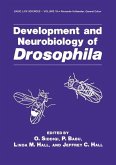As the Handbook of Behavioral Neurobiology moves into a second volume, it is appropriate to take into general account the scope and content of this series. In its broadest sense, behavioral neurobiology is the study of the behaviors of animal organisms with reference to their neurological bases. The overall objective of this handbook series is to assemble, in ten volumes, a comprehensive and up-to-date treatment of the major areas that comprise behavioral neurobiology. Within such a framework, it is possible to provide the fundamental concepts, methods, and substantive advancements in these fields in a manner that will be useful to and that will also serve as a reference source for researchers educational programs who desire a well-balanced overview of the component areas of neurobiology. The intent in each volume has been to bring together a spectrum of approaches and disciplines that focuses upon the topic at hand. The first volume presented and discussed the problems of sensory integration; the present work is concerned with the neurobiology of cognitive processes; and forthcoming volumes will include the topics of motor coordination, learning and memory, biological rhythms, motivation, sexual behavior, social behavior and communication, and the evolution of nervous systems and behavior. Thus the purpose of the editors in planning this series has been to offer a distinct handbook, employing the many varied and prevailing avenues of attack upon current problems in behavior and neurological processes, that should prove of unique value and usefulness to professionals and students alike.
Dieser Download kann aus rechtlichen Gründen nur mit Rechnungsadresse in A, B, BG, CY, CZ, D, DK, EW, E, FIN, F, GR, HR, H, IRL, I, LT, L, LR, M, NL, PL, P, R, S, SLO, SK ausgeliefert werden.









